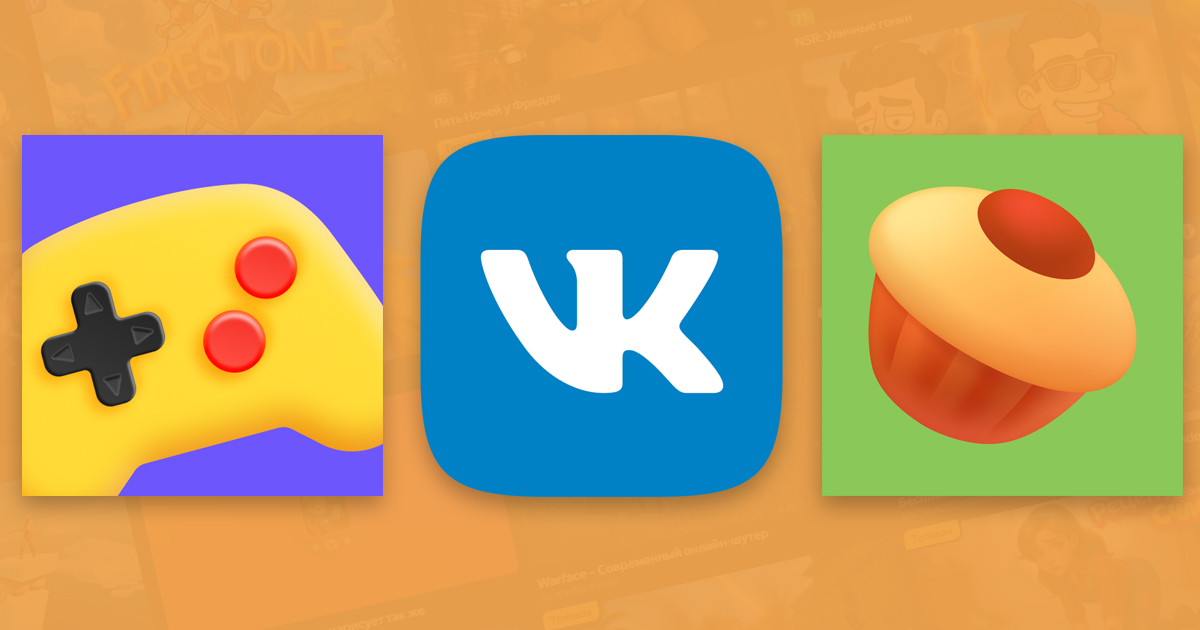The Situation in the Web Gaming Market in Russia: A Platform Perspective
We continue to explore the developments in the Russian web gaming market. This time, with the participation of platforms like Yandex Games, VK, and Pikabu Games.
Representatives from these platforms — Nikita Bokarev (Business Development Director at Yandex Games), Mikhail Shcherbakov (Head of Business Development for Social Games and Media Content at VK Games), and Vadim Kazantsev (Product Manager at Pikabu Games) shared their views on the following aspects:
- The overall state of the web games market in Russia
- The annual turnover of the Russian web games market
- The number of teams and games in the Russian market
- What web developers can expect
- The most popular projects in the Russian web
- Trends in the Russian web
- Challenges in the Russian web
- Expectations for the rest of the year and the 2026 calendar year
1. How would you characterize the overall state of the web games market in Russia today?
Nikita Bokarev — Business Development Director — Yandex Games
Three years ago, developers from Steam and mobile stores were not interested in the web. They were sure that its golden years were in the past. Today, this segment has become more understandable to developers — they come for new traffic and new sources of revenue.
On one hand, engines are adapting and providing convenient tools for porting and optimization, while on the other, traffic is becoming more expensive, and even major players, including mid-core companies, are experiencing the need for alternative income sources.
You can observe the changes over the past years through our platform: in 2021, we had 11 million users per month, and in 2024, already over 40 million. In 3-4 years, the number of games grew by about 15,000, with an increasing share of mid-core projects using in-game payments for monetization.
Attracting traffic on the web is different from classic mobile app purchases, being cheaper, and the level of player engagement is not critically different from native.
But don't think that the web games market is at its peak — in reality, its potential is realized at best by only 20%.
What we are seeing now is a full-fledged reincarnation of the web. Even at this stage, even developers from Steam are trying to enter the web with free-to-play or buy-to-play models.
Mikhail Shcherbakov — Head of Business Development for Social Games and Media Content — VK Games
The Russian web games market today resembles a Renaissance era. In the early 2010s, against the backdrop of the rapid growth of the mobile market and the rise of iPhones and Androids, social and browser projects found themselves unnecessary, as developers redirected all their efforts to mobile. However, years of high competition, expensive marketing, and market saturation with apps had their impact: more and more studios are now turning their attention back to the web. Russian platforms have become the center of attraction: VK, Odnoklassniki, and newcomers like Pikabu Games form a significant part of the global segment. Closed markets, sanctions, and internal reorientation have only exacerbated this process: the Russian web is experiencing a second life, a new dawn, where developers’ energy and creativity find fresh ground for growth.
Vadim Kazantsev — Product Manager at Pikabu Games
The Russian web games market is actively growing and evolving today. Major platforms are expanding their audiences and developing tools for developers. For instance, Pikabu Games grew from zero to 350,000 MAU within the first nine months of operation, confirming the high audience interest in web games. Meanwhile, monetization is gradually shifting from advertising to in-game purchases.
The market is reaching a new level: it's becoming more mature, and a stable player base is forming. Additionally, users have become more demanding, and the times when people played anything and everything are over. Today, thorough planning of gameplay, retention, and monetization is necessary, similar to traditional game development.
Games based on memes can still bring short-term profits, but interest in them is gradually declining. The main focus is shifting to long-term support projects and regular updates. These are the games that capture players’ attention and are monetized through donations. Unfortunately, some developers have not yet adapted to these changes and continue to operate on outdated models.
2. How would you estimate the annual turnover of the Russian web games market today?
Nikita Bokarev — Business Development Director — Yandex Games
In the web games market in Russia, there are three major players: Yandex Games, VK, and Odnoklassniki. Therefore, excluding standalone domains of gaming projects and small platforms, we estimate the market to be more than 12 billion rubles annually.
Mikhail Shcherbakov — Head of Business Development for Social Games and Media Content — VK Games
Exact estimation of the annual turnover of the Russian web games market is impossible — unlike the mobile segment, which has advanced analytical tools, transparent data for the web simply isn't available. Only benchmarks are known for the three largest platforms — VK, Odnoklassniki, and Yandex Games — which presumably make up the bulk of the market. The remaining part is distributed among numerous alt-stores and individual projects, whose revenue scales cannot be accurately assessed. According to an optimistic scenario, the overall turnover of the Russian web gaming market is between 40 to 60 billion rubles annually, making it significant and comparable to the largest segments of the industry.
Vadim Kazantsev — Product Manager at Pikabu Games
According to open sources, the volume of the Russian web games market in 2024 was estimated at 7–8 billion rubles. This is significant, especially considering the limited number of truly high-quality platforms. There are no precise figures on the market, but several studies provide these estimates (RBC Trends, Verified Market Reports). We view web games as a promising direction, which is why we launched our own platform. The market’s growth potential is still untapped: the peak has not been reached in terms of either audience or revenue, despite the presence of major players.
3. How many teams and games are there today?
Nikita Bokarev — Business Development Director — Yandex Games
On our platform, there are 6,000 developer accounts and 20,000 games. But these numbers might not mean much to anyone, as the time when quantity was of great importance has long passed for us.
What matters most is the quality of the games. Although we also have no problems with those wishing to publish: today, everyone in the CIS knows about the opportunities to interact with Yandex Games.
Mikhail Shcherbakov — Head of Business Development for Social Games and Media Content — VK Games
The number of companies in the Russian web games market today is measured in the hundreds, and the number of games has long exceeded thousands. This became possible largely due to the decreased entry threshold: modern engines like Unity, convenient tools, and ready-made assets allow for quicker and cheaper project creation than ten years ago. As a result, the indie segment has grown significantly, with small teams releasing quality and diverse content. Meanwhile, developers from the traditional mobile segment are increasingly entering the market, seeking new niches and less heated competition. Thus, the ecosystem of web games in Russia is rapidly expanding and becoming more diverse.
Vadim Kazantsev — Product Manager at Pikabu Games
According to the public data of gaming platforms, after large-scale moderation in 2024, the number of developers decreased from about 30,000 to 2,000 active accounts. Not all of them are located in Russia: some are foreign studios or developers who have moved to other countries. In general, we estimate the active community at around 3,000 developers (both studios and indie). The web developer community remains large and continues to grow. Furthermore, we observe a trend of more serious attitude toward web games from the industry as a whole.
4. What audience and earnings can a developer transitioning to the web expect on average?
Nikita Bokarev — Business Development Director — Yandex Games
I can only share approximate figures because everything depends on the genre and the specific game.
- On average, good hyper-casual games bring in $10,000 to $15,000 a month.
- Casual game earnings can reach $20,000 or more.
- When talking about quality mid-core, it's around $20,000 as well.
But, as I mentioned above, everything is relative, because, despite these average figures, we have examples of top games of different genres that earn more than $70,000 a month.
As for the audience, Yandex Games is good in that we have an even representation of men and women, with the majority of players aged 45+. Statistically, this is the most solvent audience with the highest cost of ad impressions.
Mikhail Shcherbakov — Head of Business Development for Social Games and Media Content — VK Games
Typically, a developer transitioning to the web can expect an audience of hundreds of thousands of players with successful placement on major platforms like VK, Yandex, or Odnoklassniki. However, in terms of money, the median is more modest: most projects bring in from a few tens to a couple of hundred thousand rubles per month. Thousands of dollars in revenue are quite achievable, but reaching levels above $10,000 requires a team, professional processes, and competent marketing, comparable to mobile development. Therefore, for solo indies or small studios, the web remains a good starting point and experimental ground, and for mature teams, a platform where they can build a sustainable business with the right strategy.
Vadim Kazantsev — Product Manager at Pikabu Games
The potential income for developers in the web varies greatly and directly depends on the quality of the game itself: visual components, gameplay mechanics, narrative depth, and even topicality (e.g., meme potential). It is virtually impossible to state an average figure.
However, a practical piece of advice, especially relevant for indie teams: it is important to publish the game on as many platforms as possible. A game might not "hit" on one service but could become a hit on another.
5. What projects are most widespread in terms of monetization and genres in the Russian web today?
Nikita Bokarev — Business Development Director — Yandex Games
Starting with popular genres that still perform excellently:
- card games (mahjong, solitaire);
- traditional hypercasual (e.g., bubble shooters).
Recently, there's been a great trend towards the growth of hybrid casual games where revenue from advertising and in-game purchases is roughly equal.
The most significant growth in in-game payment revenues is seen in mid-core games (like "Recipe for Happiness," "Mansion Mystery," Battle Arena, and many others).
Mikhail Shcherbakov — Head of Business Development for Social Games and Media Content — VK Games
The popularity of genres and monetization models heavily depends on the platform and its audience.
- On Odnoklassniki, where the main audience consists of adult women, casual projects are most popular, primarily classic match-3 games, which remain hits but are gradually being replaced by merge games, similar to the mobile market.
- On VK, various social and competitive projects leveraging the platform’s network effect are relevant.
- On Yandex, where the audience is younger, hypercasual games focused on quick sessions are consistently popular.
Overall, web trends mirror the mobile segment — casual and mid-core games are popular.
It’s worth noting that until recently, many new web game developers believed that advertising monetization was the key type on the market. This was always only partially true. The fact was that new developers noticed a large number of hypercasual games appearing everywhere. These projects had only one monetization — ads. Projects that were deeper, with a meta and serious in-app purchases, were fewer and harder to spot. But it’s in these projects that the bulk of revenue is generated: a paying user brings significantly more to the developer than one who just watches ads, and they also spend more time in the game.
Vadim Kazantsev — Product Manager at Pikabu Games
The most popular genres on the web are arcades, puzzles, idle projects, and farms. These formats are familiar to players but also allow authors to experiment with stories and mechanics.
As for monetization, two main directions lead: in-game purchases and ads. Developers increasingly combine them, giving players the choice to spend money or watch ads. This model allows smoothing out seasonal audience fluctuations (like the traditional summer slump) and maintaining stable income.
6. Speaking of trends, which ones are most prominently emerging in the Russian web?
Nikita Bokarev — Business Development Director — Yandex Games
The main trend of the past year is the increase in both the quantity and quality of mid-core games, where over 90% of revenue is generated by payments.
Mikhail Shcherbakov — Head of Business Development for Social Games and Media Content — VK Games
The trends in the Russian web largely reflect global trends in the mobile market, but with a slight delay. Developers are bringing the most successful mechanics and approaches from mobile to the web, which have already proven effective. Thus, we see the gradual replacement of classic match-3 games by merge games, which offer more depth and engagement. Hybrid casual projects, combining the simplicity of hypercasual games with the complexity of major projects, are becoming more common. Additionally, there's growing demand for social mechanics and live services that keep players engaged long-term and allow for building sustainable communities within platforms.
Vadim Kazantsev — Product Manager at Pikabu Games
Key trends in the Russian web games market include:
- The number of players is growing as more adults get involved;
- Revenues from in-game purchases are increasing, while those from ads are declining;
- The advertising market is generally declining, so the focus in monetization shifts toward in-game payments.
7. Does the Russian web games market face significant challenges at the moment?
Nikita Bokarev — Business Development Director — Yandex Games
Of course, challenges always exist. But perhaps the key and unique challenge right now is attracting European and American content and establishing partnership relations. This is something we have to work on almost daily — finding solutions to streamline these processes.
Mikhail Shcherbakov — Head of Business Development for Social Games and Media Content — VK Games
The biggest challenge for the Russian web and simultaneously its main opportunity is to attract a huge audience that remains on the traditional mobile market. Millions of players are accustomed to mobile, and the web needs to offer them the same convenience and quality but with additional advantages: quick access without installation, easy launch on any device, and new interaction formats. If the industry succeeds in convincing even a portion of this audience to switch, the Russian web games market could grow exponentially. This is the crucial development vector for the coming years.
Vadim Kazantsev — Product Manager at Pikabu Games
Today, the market is facing the following challenges:
- Platforms are increasing moderation and removing low-quality projects, raising competition among developers;
- The audience is becoming more demanding, expecting quality content, including mid-core games;
- There's significant reliance on advertising networks, yet ad blockers are becoming more effective.
Developers should not rely solely on advertising. It's better to combine different monetization models and publish projects on as many platforms as possible to mitigate risks.
8. The last question about the immediate future: what market growth should we expect by the end of the year and in the 2026 calendar year?
Nikita Bokarev — Business Development Director — Yandex Games
My forecast is this: the global web market will show a growth of about 20-30% year-over-year in monetary terms, and the phase of active growth will last another 2-3 years.
There will be more content, users will continue to adjust to interacting with games in a browser environment, engines will adapt even further, providing more porting opportunities, and the share of web revenue for mobile developers and publishers will increase.
Mikhail Shcherbakov — Head of Business Development for Social Games and Media Content — VK Games
I would look at this question from a slightly different angle — we expect significant game projects that have shown high results in the mobile segment to come to the web. If the optimistic forecast for their release comes true, we'll see a rise in interest from players, an influx of new players, and of course, revenue growth through balanced monetization of these projects.
Thus, if addressing the question directly, we will see growth in the quality of projects and the overall popularity of the web. The gaming industry remains content-oriented: each blockbuster immediately boosts revenue and helps attract new users.
Vadim Kazantsev — Product Manager at Pikabu Games
We expect the Russian web games market to continue growing both this year and into 2026. Users appreciate web platforms for their convenience: no installation is required to launch games, just a single click grants access to thousands of projects across various genres.
However, explosive audience growth is no longer expected: the "low-hanging fruit" has been harvested. Nevertheless, we anticipate further growth in profitability. This largely depends on the developers themselves: if they plan monetization from the concept stage and focus on content quality, the market can reach a new level of profitability.



